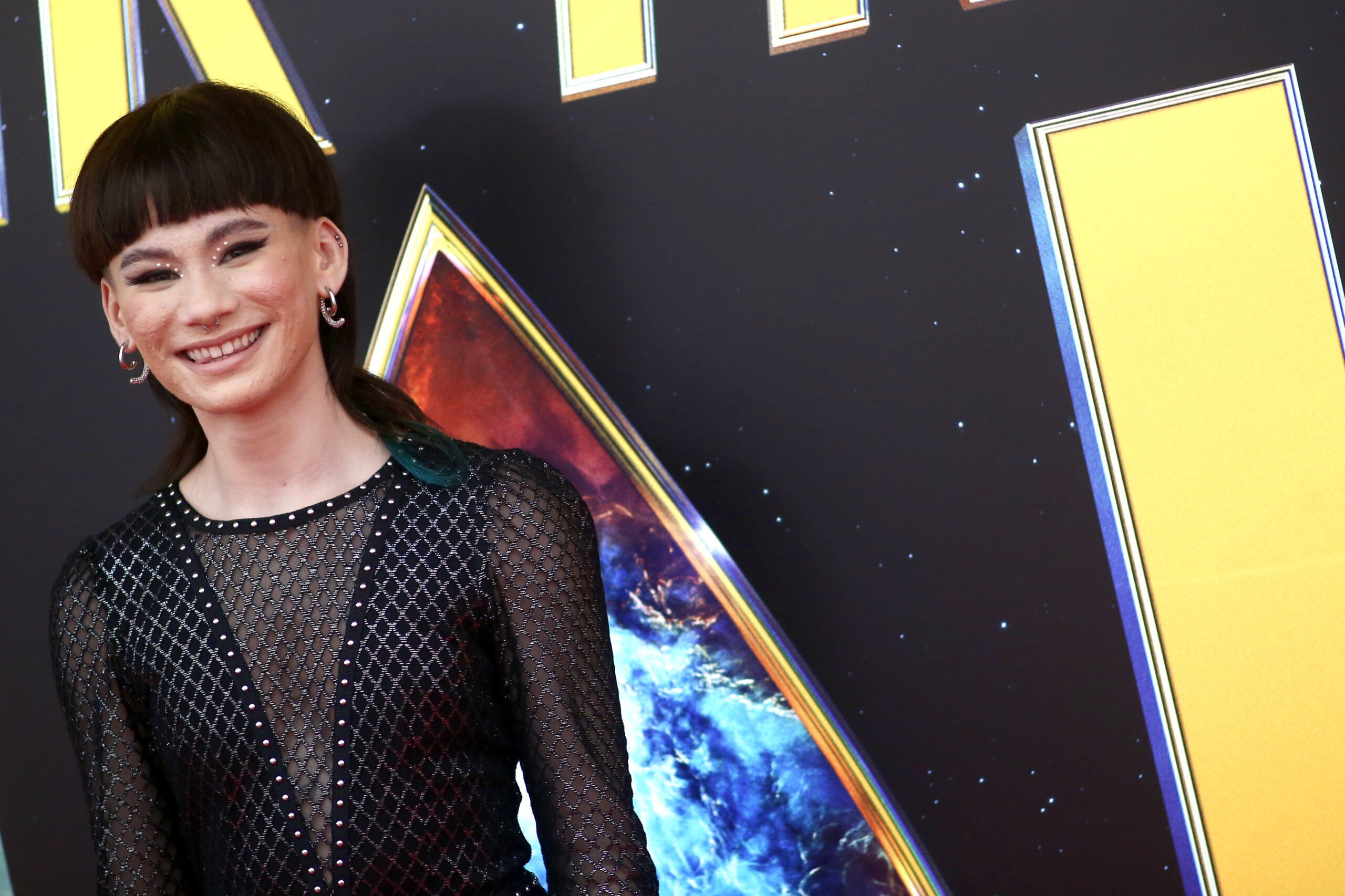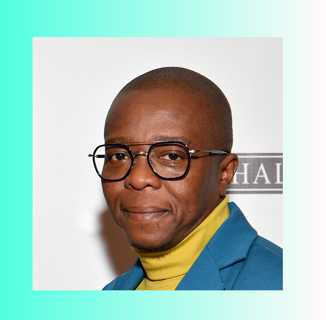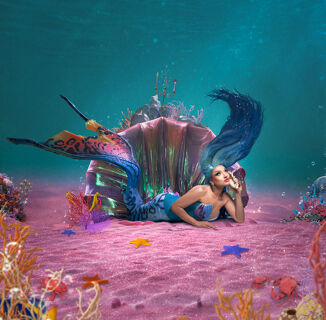Ian Alexander’s background has given them an inside angle of cults. As an ex-Mormon raised in the church, the 21-year-old actor, Twitch streamer, and TikToker brings a kind of passionate honesty to every role they play, from the traumatized teen Buck Vu in “The OA” to the voice of Lev, a trans character in the buzzy sequel to the apocalyptic game “The Last of Us.” In their latest role in Cory Deshon’s Daughter, Alexander doesn’t shy away from bringing their lived experience to the character of Brother, a child who, along with a newly-abducted teen girl renamed “Daughter,” forms a nuclear family away from the prying eyes of civilization.
Brother and Daughter find themselves in the position so many queer and trans kids are in right now: a prisoner of their parents’ ill intentions. INTO spoke with Alexander about TikTok, trans rights, and bringing queer catharsis to the screen.
There’s so much legislation around queer kids and families right now: I wanted to get a sense of how you felt making this movie which is about a different kind of abuse within families?
IAN ALEXANDER: You brought up a great point. I know that right now, there is a lot of anti-trans and anti-LGBTQ legislation and there kind of always has been. That really hasn’t changed since we created Daughter. I mean, it all boils down to power and control, and certain people trying to control what trans people and people with uteruses do with their bodies. And it’s a really timely topic to talk about, with my character Brother being in this very restrictive environment where he doesn’t really have any freedom. He just doesn’t have any ability to go outside or really express himself in ways that aren’t other approved. He has a short list of activities that he can do. He can play the same two games and read the same book over and over. The only thing he’s given freedom to do is paint. That’s the only activity where he can actually like express himself in a way that isn’t censored or restricted.
And not even like being able to have a name really is interesting as well. In discussions around the film, did people get into talking about family stuff?
I knew (writer-director) Cory [Deshon] and Vivien [Ngô] before we started working on Daughter together. And I think Cory was inspired by us and our experiences just as people and as friends. Brother’s story mirrors my own personal story. I’ve talked with Cory and Vivian about my childhood and also have told pretty much the whole world that I grew up Mormon and lived in a pretty restrictive and religious environment for most of my childhood. I think that got the gears turning with Cory where he was like, “Okay, what if we took this but just dial it all the way up to like, 200%.” Like what is like the worst possible case scenario of a person growing up in a really restrictive environment, in literal captivity?
I love the feeling of freedom at the end, too. Just that image of like, queer people taking off in a truck. What’s the reaction been like?
I actually just did an interview with someone who also grew up ex-Mormon. So there’s definitely I think there’s going to be a really big impact on the Mormon community or any religious community, and for anyone who grew up in kind of a maybe transphobic or homophobic environment, where they may see themselves in brother and daughter. And yeah, their form of creative expression and rebellion ends up being very queer. They put on literally a musical, a campy performance. And I’ve heard lots of stories of people who went into musical theater in high school, but then they like weren’t allowed to anymore because their parents are like, “Oh, that’s only for those kinds of kids.” Very homophobic views of art and self-expression. And it’s sort of frowned upon to be flamboyant and out there. Brother had so much bubbling up under the surface. He was just he was like, dying to be seen and to be heard. So I’m glad that he gets that catharsis at the end.
We’re once again at a moment where like queer and trans people are seen as this threat to the family when really like, we’re just trying to like, escape that whole mentality. So it’s really interesting to see more like, horror films around like cults and family and stuff like pop up and obviously you’ve done “The OA” and “The Last of Us.” There’s a lot of cult stuff!
Yes, there’s recurring themes in my career. And that’s definitely intentional. I made a joke on my TikTok last night where I was like,” if I had a nickel for every time that I played a boy that grew up in a cult, I would have two nickels. It’s not a lot, but it’s weird that it happens, right?”
There’s a reason why these stories speak to me and speak to so many other people. Lev on “The Last of Us” has a very similar storyline to Brother, they both grew up in really religious restrictive cults, and they finally break free and then they’re persecuted for it.
Hopefully there’s some relief in it for you to get to play out these scenarios.
It is really healing. There’s something that’s so cathartic about acting in general, it’s like a safe place for you to express all of your emotions very strongly. And I’m a very emotional person. So I love to be able to put all of that energy somewhere else. There’s a very cathartic scene towards the very end—I don’t want to spoil anything for those who haven’t seen the movie yet, but I was able to channel all of that anger and grief into Brother’s final moment of catharsis and I’m really proud of that. That moment is one of my favorite moments in the movie.
Amazing. I will stay obsessed with your TikToks.
TikTok has a chokehold on us all.♦
Don't forget to share:
Help make sure LGBTQ+ stories are being told...
We can't rely on mainstream media to tell our stories. That's why we don't lock our articles behind a paywall. Will you support our mission with a contribution today?
Cancel anytime · Proudly LGBTQ+ owned and operated
Read More in The INTO Interview
The Latest on INTO
Subscribe to get a twice-weekly dose of queer news, updates, and insights from the INTO team.
in Your Inbox













